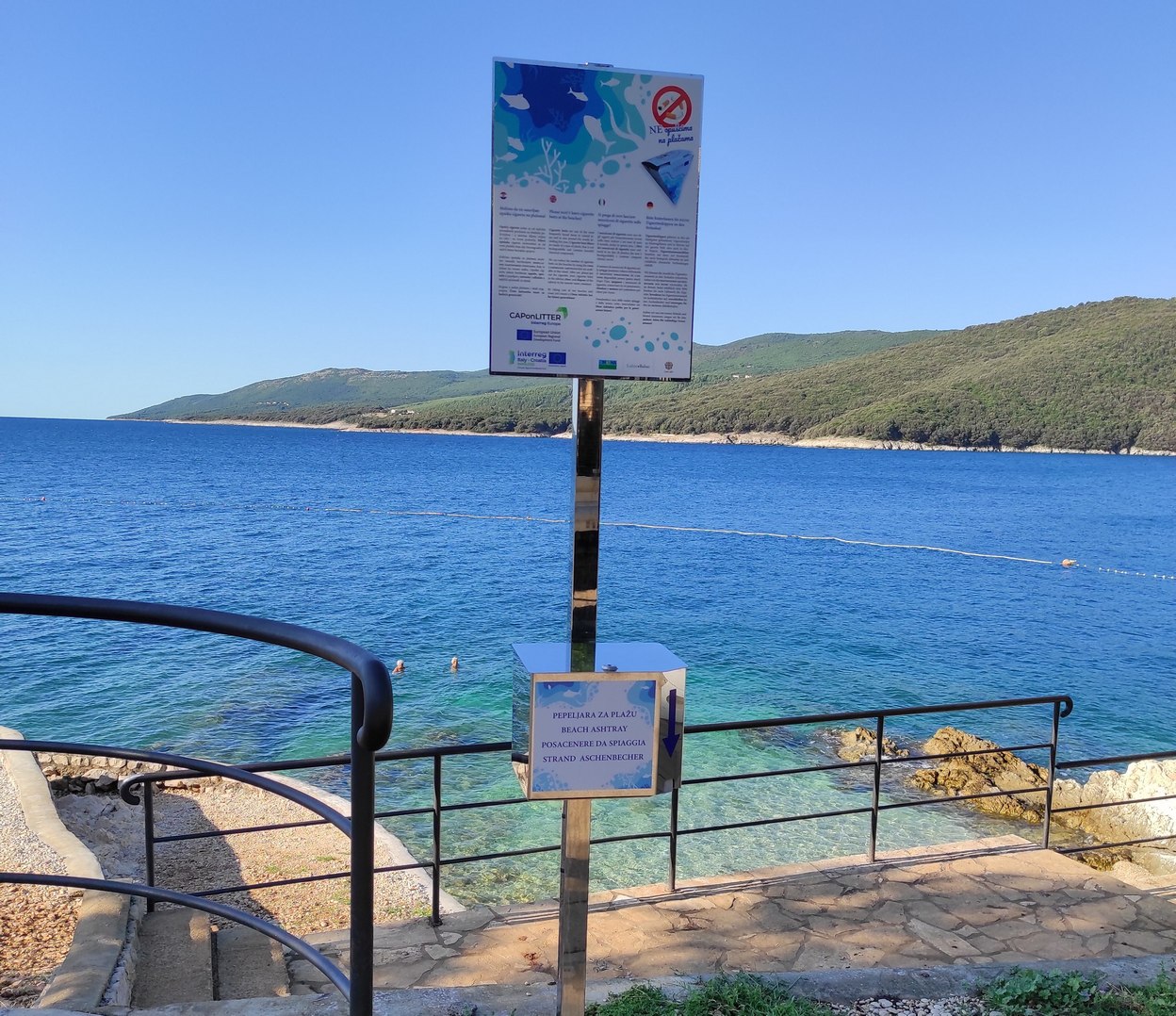
Free-to-use ashtrays on Istrian beaches
Beach waste management in heavy tourism-oriented areas is a complex activity. The number of users, type of beach activities, natural conditions such as wind an
CAPonLITTER aims at improving policies and practices that can help in preventing marine litter that results from coastal tourism and recreational activities. More specifically, the project will focus on key fractions of waste, such as plastic food and drink containers originating from beach facilities and recreational events, due to improper behaviour of consumers but also to lack of incentives and structures for prevention, collection and recycling of waste.
The project involves authorities and organisations from Portugal, Spain, France, Croatia, Greece, Bulgaria and Germany, territories in which coastal tourism is a key economic activity, which is not only highly impacted by marine litter but can also put significant pressure on local infrastructures and generate large amounts of unmanaged waste.
Through an interregional process of exchange of experiences and mutual learning, partners will explore ways to improve their regional policies and promote the implementation of best practices, with the active participation of key stakeholders. The interregional process will result in 7 regional Action Plans that will set into motion the operationalisation of the lessons learned in two ways: on one hand initiating the implementation of the practices in the territories concerned, through the policy framework the partners operate on; and on the other aligning them with other policy instruments, such as operational programmes and specific structural funds that can finance them.
Across these regions, CAPonLITTER will result in various communities of stakeholders commited to zero plastic waste, beaches and coastal events with zero waste management plans in place to prevent marine litter, including significant improvements toward waste prevention, collection and recycle at these coastal sites.
€1,359,334.00
Environment and resource efficiency
OP SEUR is one of the 16 programmes created for the operationalization of Portugal 2020 Strategy that gathers the action of 5 European Structural and InvestmentFunds - ESIF, Cohesion Fund,ESF, EAFRD and EMFF- in which the programming principles are laid down and mark the economic, social and territorial development policy to be promoted in Portugal between 2014 and 2020.
The strategy for OP SEUR has a multidimensional approach of sustainability based on 3 strategic Investment Axes, from which Axis III - “Protect the environment and promote resource use efficiency” is based specifically on the operationalization of strategies such as for the waste sector, the water sector and related to biodiversity and environmental values.
The types of eligible operations concerning waste management consist in the “Valorisation of the waste by reducing its generation and landfilling, and increasing the selective collection and recycling” such as “actions to prevent the generation and dangerousness of waste, including education and awareness actions”; “to Increase the quantity and quality of multi- material recycling” and “to support systems and initiatives of selective collection of biodegradable municipal waste”.
In addition to these actions, OP SEUR could be improved by broadening the focus to include specific strategies to prevent, combat and recycle marine litter (ML).
The Policy Instrument still incorporates waste management strategies envisaged by previous programming period (2007-2013) with infrastructure projects and systems that are now deemed unacceptable and even obsolete. Policy instruments acknowledge that the sea is often the final destination of waste generated in inland waters/sewers and the need to resolve those issues at their source. The OP recognizes the importance of preserving ecological status of sea water but, while acknowledging the fact that its quality has deteriorated in last 5 years, it limits the scope of action by stating that it will address this issue primarily by funding projects for improving the waste water treatment. The OP fails to recognize influence of coastal tourism on creation of marine litter (ML)and addresses it only indirectly.
There are 3 levels of responsibilities related to management of OPCC 2014-2020 in Croatia:
1. Ministry of Regional Development and EU Funds, the Managing Authority for the complete OP;
2. Ministries/institutions that are 1st level intermediary bodies, responsible for specific investment priorities. In case of priority targeted byIRENA, 1st level intermediary is Ministry of Environment and Energy;
3. Ministries/institutions that are 2nd level intermediary bodies, responsible for specific investment priorities. In case of priority targeted byIRENA, 2nd level intermediary is the Environmental Protection and Energy Efficiency Fund (included as stakeholder)
The Regional Strategy for Development of Varna Region defines the overall framework for the development of the region of Varna in the medium term, formulating the objectives and priorities for integrated and sustainable development. This strategic document takes into account the policies, objectives, priorities set in the European and national regional development planning system. The Strategy is designed to manage the development of the territorial community by constituent municipalities, but does not directly manage resources. The Strategy includes, among others, sections related to:
-Natural resource conditions and potentials;
-Environment - state, trends, problems and risks;
-Strategic goals, priorities, measures and actions.
Although the Strategy is in line with the planning documents from the higher levels, it has no concrete impact on integrated management of the Black Sea coast, as it lacks in-depth measures and actions for Integrated Coastal Zone Management (ICMZ). Measures relevant to the issue are set only in two different specific objectives of the priorities and they are only related to risk prevention (such as the development of early warning systems for emerging flood risks, fires, activation of sloping areas) and integrated management of coastal fishing areas (projects to reduce the negative impacts of fishing on coastal areas).
The Partnership Agreement 2014-2020 (PA), along with the sectoral programmes, includes also 13 multi-sectoral and multi- funded Regional Operational Programmes (OP) in Greece. Crete OP includes projects and regional scale actions, leverages local strengths and is funded by the European Regional Development Fund and the European Social Fund. The aim of the OP is to strengthen the capacity of the region and local authorities to implement a full range of actions that aim to serve the main priorities of the PA.
Actions implemented in the region in the last years can be further improved by an integrated design and better managed in terms of division of responsibilities and coordination. Research and installed services and business can contribute to better inform the various aspects of risk and to effectively support the development and implementation of regional plans, namely on waste prevention and management. To protect the coast from pollution, cooperation with other European regions will be also enhanced.
The Region has significant environmental diversity and cultural heritage elements that can strengthen the regional economy. Interventions that have been implemented have contributed to the protection and promotion of these resources but institutional difficulties, shortcomings in spatial planning and delays in implementation, are major hinders.
The ERDF-ESF Operational Programme for the South Region Provence Alpes Côte d'Azur (PACA) aims to boost economic growth and contributes to achieving at regional level the Europe 2020 targets for smart, sustainable and inclusive growth.
The relevant Priority Axis 3 of this PO is: energy transition and sustainable resource development; the thematic objective: to preserve and protect the environment and to encourage the efficient use of resources; and Priority for investment: Protect and restore biodiversity and soil and promote ecosystem services, including through Natura 2000 and green infrastructure. The mobilization of FEDER funds will allow the emergence of a model of economic development in which biodiversity is better known, preserved and valued.
A significant part of the attractiveness of the region PACA is based on its unique reservoir in terms of biodiversity, which is threatened by strong land pressure, urbanization and sometimes unproper management of the natural resources.
Biodiversity is a priority for nature conservation but also for the economy, which are at the heart of a proactive policy of PACA, in favor of the development of regional natural parks and e.g. Eco-tourism.
Taking ML into account, by integrating its prevention into regional local public policies would promote the implementation of concrete solutions beneficial to the sustainable development of the coastal territories.
The Marine Strategy Framework Directive (MSFD) is the EU environmental pillar of the Integrated Maritime Policy. In Annex I of the Directive 11 descriptors are listed to determine a so-called “good environmental status”. Descriptor 10 sets that by 2020 “Properties and quantities of marine litter do not cause harm to the coastal and marine environment.” To fulfill the requirements of the MSFD national Programmes of Measures for all Descriptors, including ML, had to be determined (2015) and are currently being implemented. In the transposition of the MSFD to Germany, one of the 9 adopted measures for D10 aims at “Reducing amounts of plastic litter through local regulatory provisions” (EG5-08). So far this measure describes more a wide field for action than one or several specific measures. CAPonLITTER project could facilitate the operationalization of the EG5-08.
In addition, the Regional Seas Conventions for the protection of the Mediterranean (UNEP/MAP), the North-East-Atlantic (OSPAR) and the Baltic Sea (HELCOM) have also developed Regional Action Plans on Marine Litter (RAPs ML), the latter two under the lead of Germany, specifically UBA (P8), who is leading the processes technical-wise. The RAPs ML demonstrate the wide scope of required potential solutions to combat ML and are powerful instruments for cross-regional cooperation, which is ongoing between the Regional Seas Conventions. They are closely interlinked with national measures/actions required to combat ML.
The Strategic Plan for Tourism of Fuerteventura (SPTF), under the responsibility of the Tourism and Territorial Planning Agency of Fuerteventura Island Council, promotes sustainable tourism and tourism quality. Its main objective is to improve the tourist demand while preserving the environment. For this purpose, it promotes the diversification of tourism products, with focus on the enjoyment of nature and protected areas.
Although the Plan promotes a sustainable strategy based on nature preservation and territorial sustainability, it does not include specifications to minimise the impact of increased tourism pressure on coastal and protected areas. Despite recognising that coastal tourism has an impact on waste generation, the Plan does not include provisions for prevention and management of the large amounts of waste generated by the sector, nor does it refer specifically to marine litter.
Fuerteventura Council is currently designing the Territorial Plan for Fuerteventura Island (TPFI), which includes the planning of land uses and the management of activities, namely on tourism and waste management. On the other hand, the SPTF serve as a basis for designing the policies that are approved in the TPFI. The Action Plan to be developed in CAPonLITTER could include recommendations on how to improve the plans and be incorporated in the policies related to tourism and waste.

Beach waste management in heavy tourism-oriented areas is a complex activity. The number of users, type of beach activities, natural conditions such as wind an
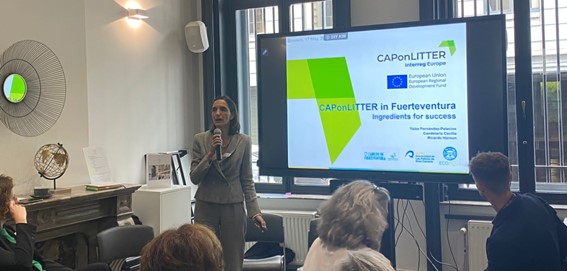
Fuerteventura Action Plan to reduce marine litter related to tourism and recreation
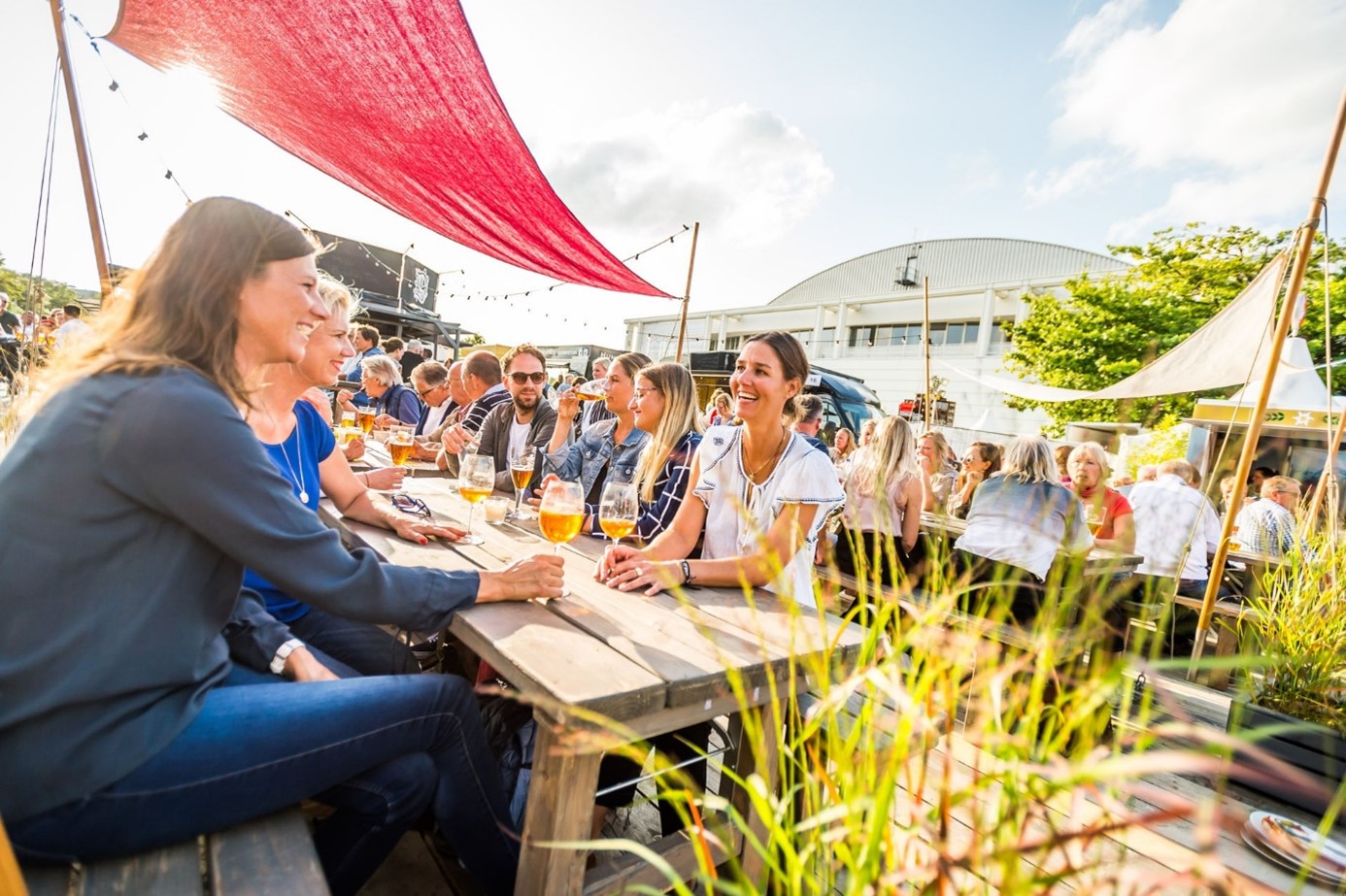
Hands-on: 4 German coastal municipalities implementing CAPonLITTER Action Plan to combat marine litter
The Region of Crete Action Plan was presented during the Final Event of CAPonLITTER project.
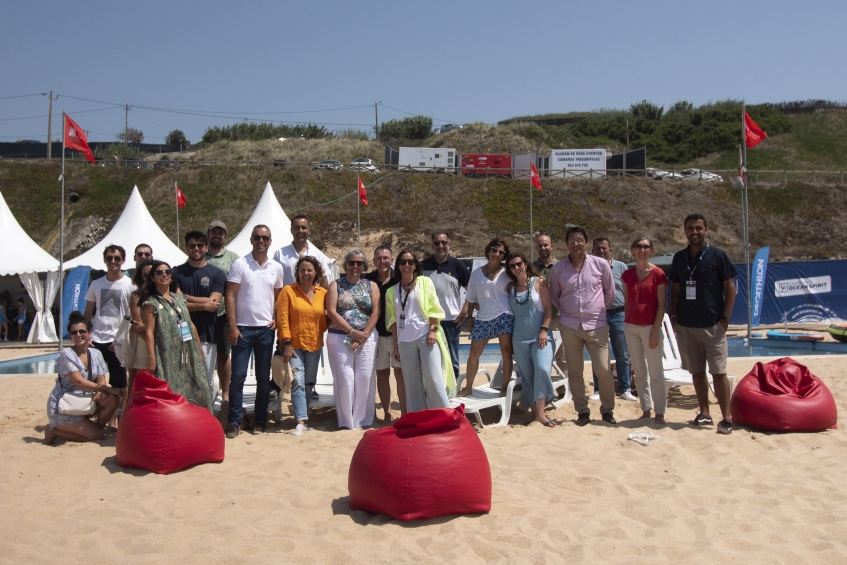
The Portuguese Action Plan was presented during the Final High-Level Public Dissemination Event in Brussels.
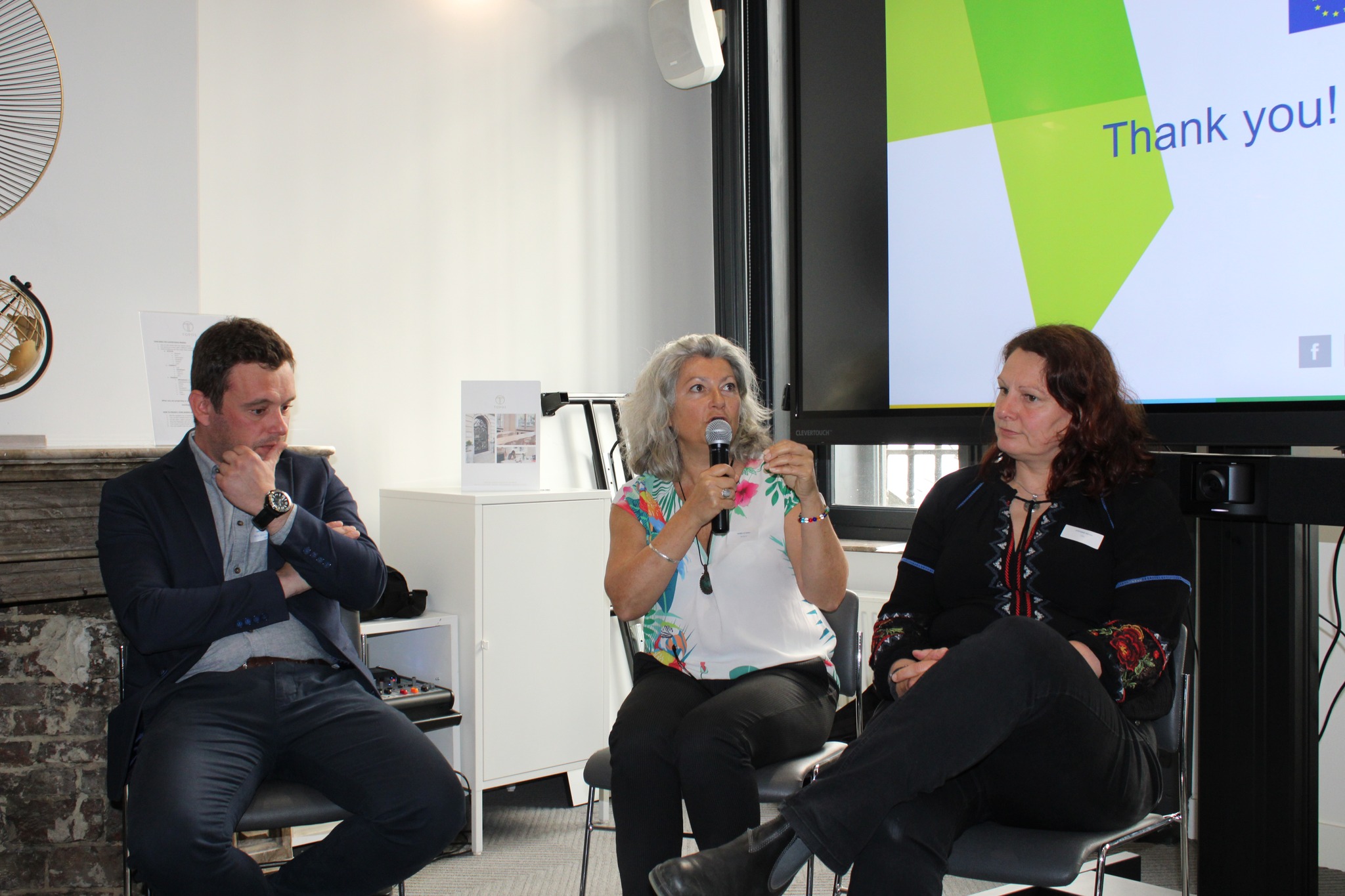
The second phase of the CAPonLITTER project was concluded with the final event on 16 and 17 of may in Brussels organized by Zero Waste Europe.
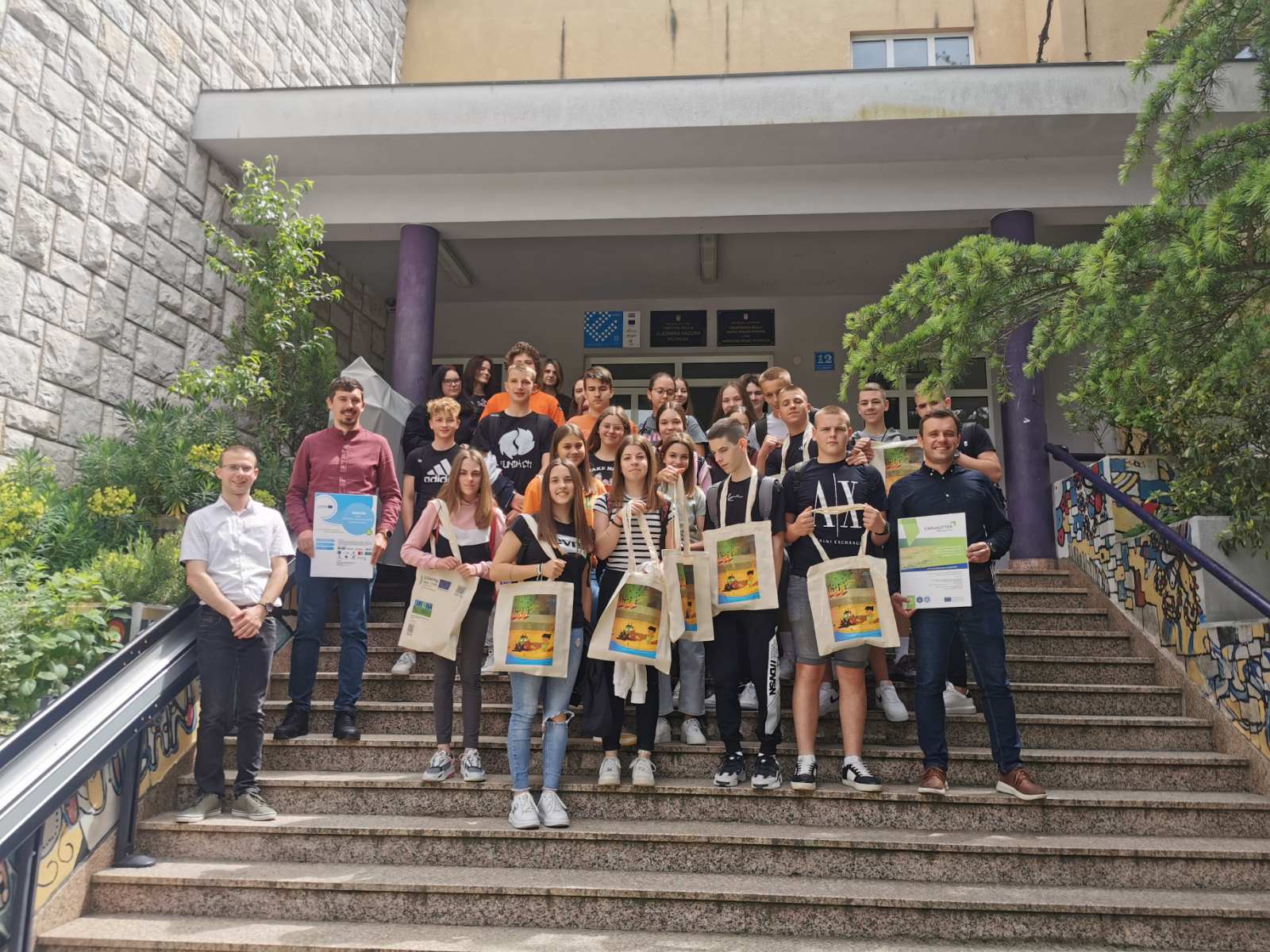
The second phase of the CAPonLITTER project was concluded with the final project meeting and high-level dissemination event, organised by Zero Waste Europe in

The CAPonLITTER consortium (and stakeholders!) got together one last time before the end of Phase 2.
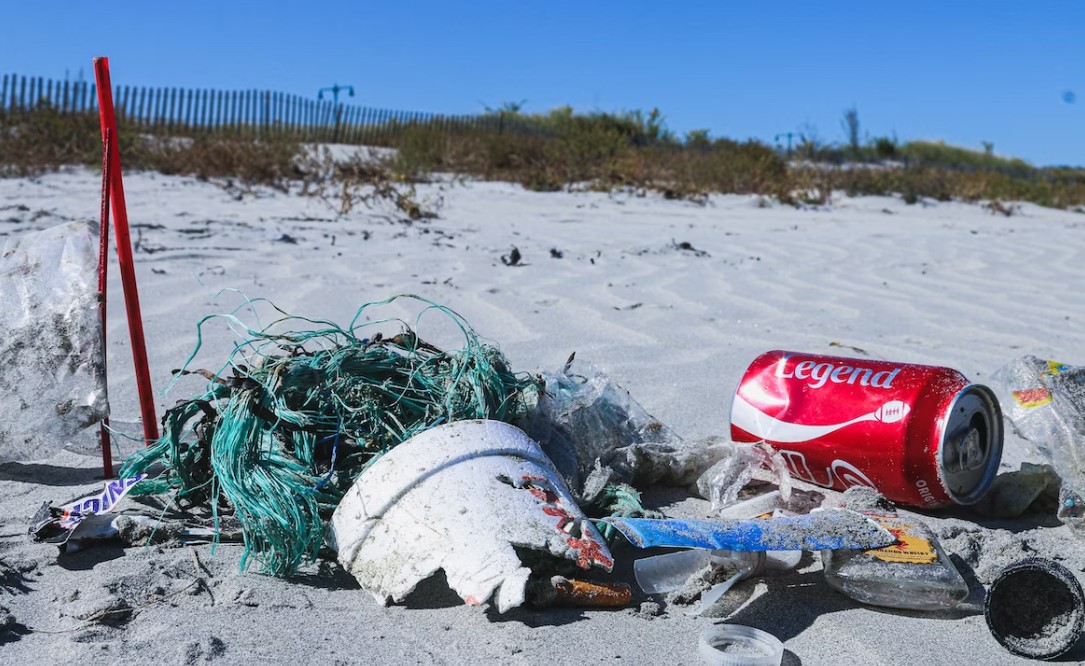
The CAPonLITTER Greenbook was one of the main products of Phase 1 of the Project!
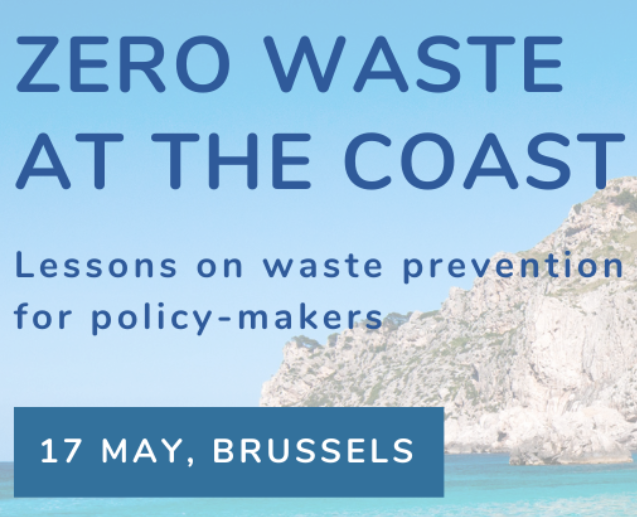
After 3 years, the CAP on LITTER project concluded its work by organising a high-level dissemination event in Brussels, 17th May 2023.